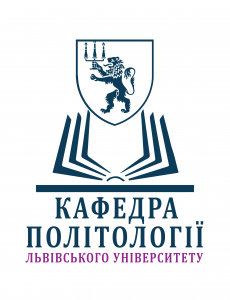The proposed book is a comprehensive collection of didactic materials for the academic course “Comparative Analysis of Political Institutions and Systems of Central and Eastern European Countries” developed by Prof. Anatoliy Romanyuk and Prof. Vitaliy Lytvyn and implemented by the Department of Political Science within the Jean Monnet Module “Political Institutions and Systems in Europe: Comparisons and Lessons for Ukraine.”
The book comprises materials that provide a diverse perspective on the political and institutional development of the Central and Eastern European region from the fall of communist regimes in the late 1980s to the present day, including the context of accession and membership in the European Union.
Initially, the didactic materials introduce readers to the Jean Monnet Module “Political Institutions and Systems in Europe: Comparisons and Lessons for Ukraine” and the academic course itself, offering a syllabus, methodological recommendations, and study materials. Next, attention is given to defining and understanding the Central and Eastern European region from historical, geopolitical, and cultural perspectives, with several essays and articles provided on the subject.
The central focus of the book is the synthesis of the national constitutions of Central and Eastern European countries that established democratic values and institutions after exiting the socialist bloc. The full texts of the current constitutions of eleven countries in the region—Bulgaria, Croatia, Czechia, Estonia, Hungary, Latvia, Lithuania, Poland, Romania, Slovakia, and Slovenia—are included. A separate chapter is dedicated to the treaties on the accession of these countries to the European Union between 2004 and 2013.
An important aspect of the didactic materials is the examination of the dynamics of changes in electoral systems and relevant legislation in Central and Eastern European countries from 1989 to 2016, reflecting the evolution of democratic processes in the region. Additionally, the latest laws and analytical materials or references to them are provided. The book also offers an overview and combination of various indicators and indexes characterizing the level of development of political institutions and systems in Central and Eastern European countries. At the end of the didactic materials, recommended literature and lists of databases and specialized projects for in-depth study of the stated issues are provided. Thus, the book can be used by students, postgraduate students, doctoral candidates, and educators of higher education institutions, politicians, and civil servants, as well as anyone interested in the political institutions and systems of Central and Eastern European countries.
The didactic materials can be obtained at the Department of Political Science.
Prepared with financial support from the European Union under the Erasmus+ Program in the direction of “Jean Monnet for Higher Education” (module “Political Institutions and Systems in Europe: Comparisons and Lessons for Ukraine” No. 101126702 – PISE-CEfU – ERASMUS-JMO-2023-HEI-TCH-RSCH).

